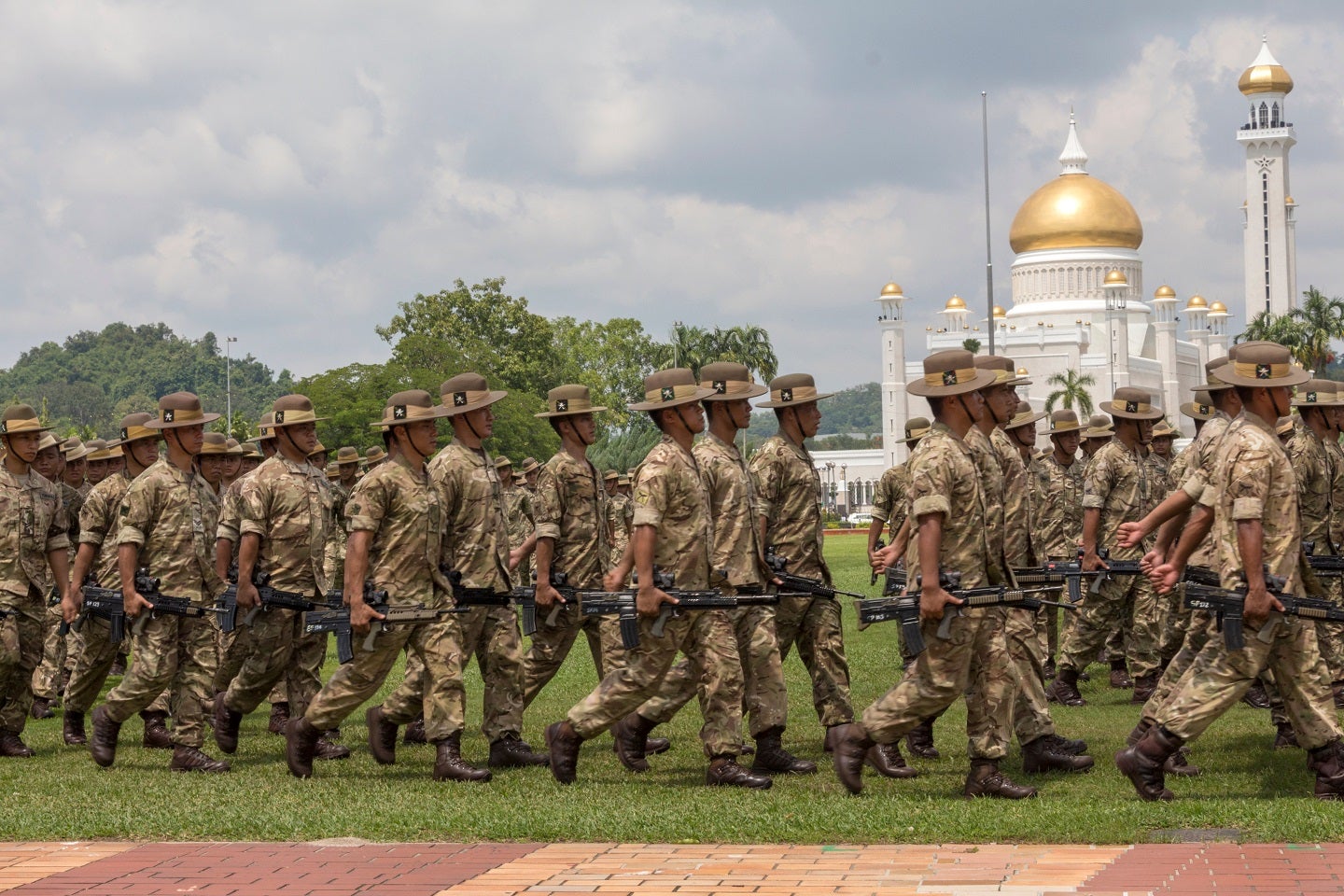
Brunei, with a defence spending of $437.2m (Br$582m) in 2023, reveals a tri-force strategy fortifying its Army, Air Force, and Navy, according to GlobalData’s “Brunei Defence Market 2023-2028” report.
Focused on geopolitical intricacies, modernisation imperatives, and counterterrorism measures, the nation’s defence blueprint signifies a commitment to regional stability and economic diversification.
Brunei’s defence policy, centred on diplomacy and deterrence, responds to evolving geopolitical dynamics, especially in the South China Sea. A $437.2m defence budget charts a forward-looking course with a 1.7% CAGR, reaching $486.2m by 2028, according to GlobalData’s intelligence on Brunei’s defence market. The tri-force strategy encompasses countering territorial disputes, terrorism and modernising armed forces.
Amid South China Sea disputes, Brunei’s balanced approach involves maritime patrol aircraft, radars, and fast patrol boats. Modernisation efforts and alliances with the US, Singapore, and Malaysia reinforce the equatorial countries stance as a player in the region. The five-power defence arrangements (FPDA) amplify regional collaboration, fostering ties with Malaysia, Singapore, Australia, and New Zealand.
Brunei’s defence modernisation focuses on technologies and quality training. Helicopter modernisation for the Air Force and initiatives like the National Coastal Surveillance System for the Navy underline the South-East Asian country’s dedication to maritime security. Economically, defence strategy aligns with diversification, reducing reliance on fossil fuels and contributing to a resilient economy.
The Ministry of Defense is steering military capabilities, channelling investments into modernisation and counterterrorism. Collaborations with the US, Singapore, and Malaysia influence defence procurements, while the biennial Brunei International Defense Exhibition (BRIDEX) is a global entry point for defence manufacturers.
With a $128.1m acquisition budget, Brunei attracts foreign investors selectively, favouring direct commercial sales for defence technology. Despite challenges like transparency and a modest budget, the defence industry anticipates growth. Sectors like military fixed-wing and EO/IR Systems dominate, with agreements like the C-295MW procurement enhancing Brunei’s capabilities.
In navigating complexities, addressing challenges, and embracing growth sectors, Brunei’s defence strategy is a testament to its commitment to regional stability and economic resilience that shapes its armed forces’ future.







